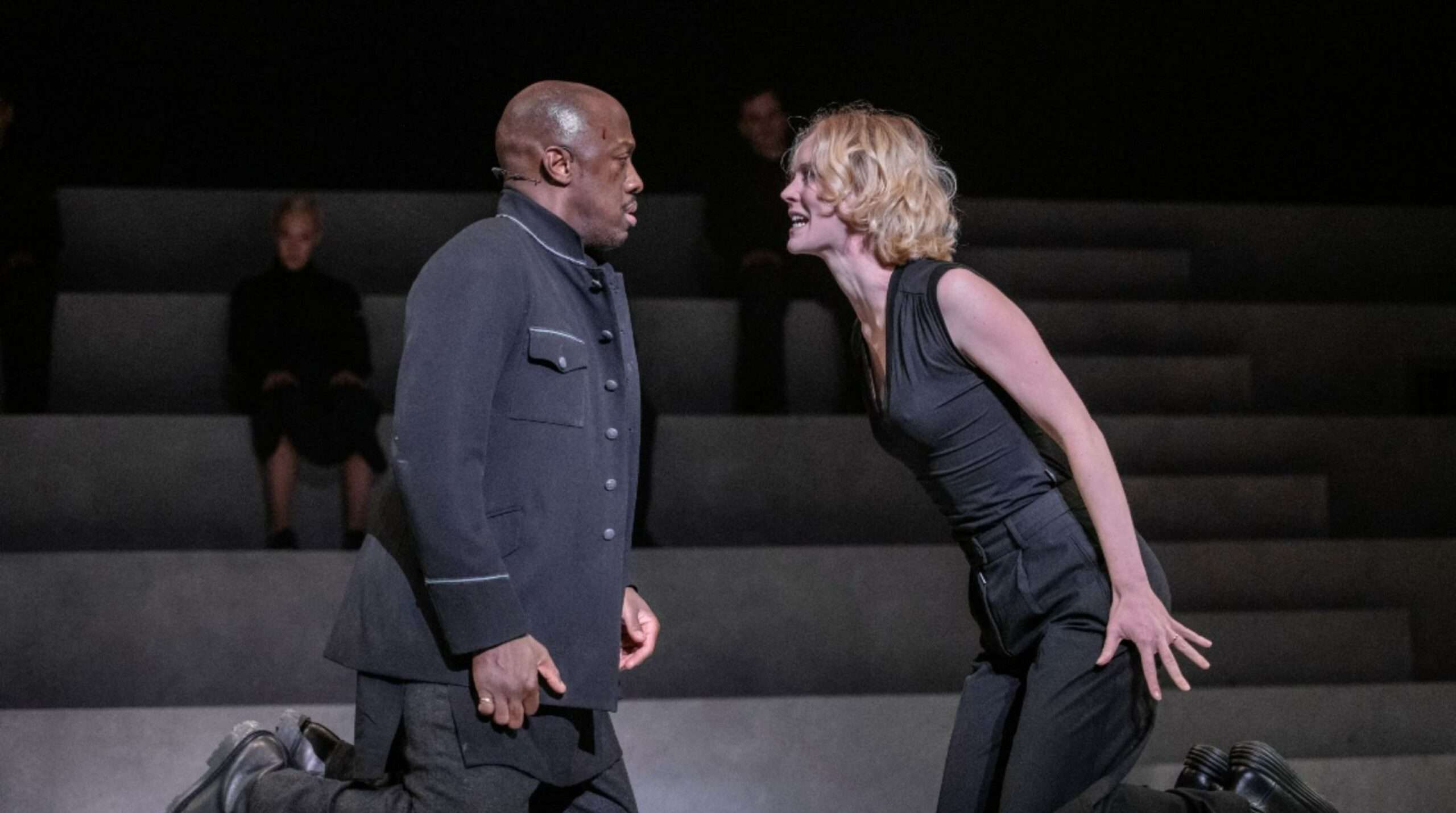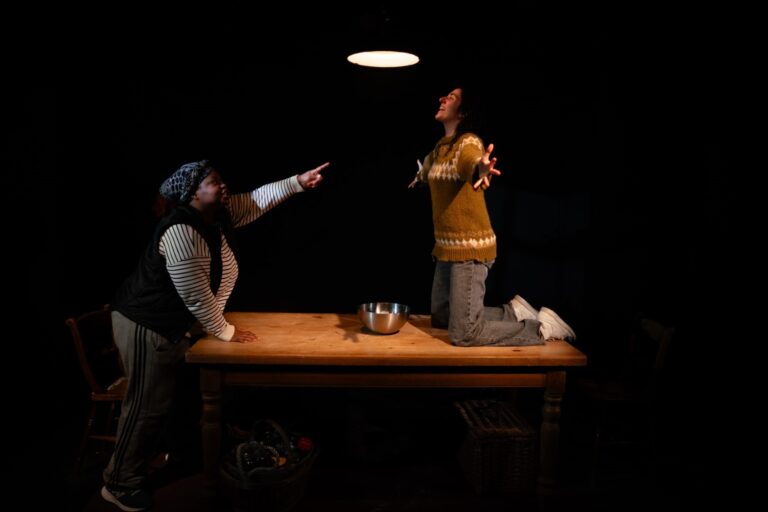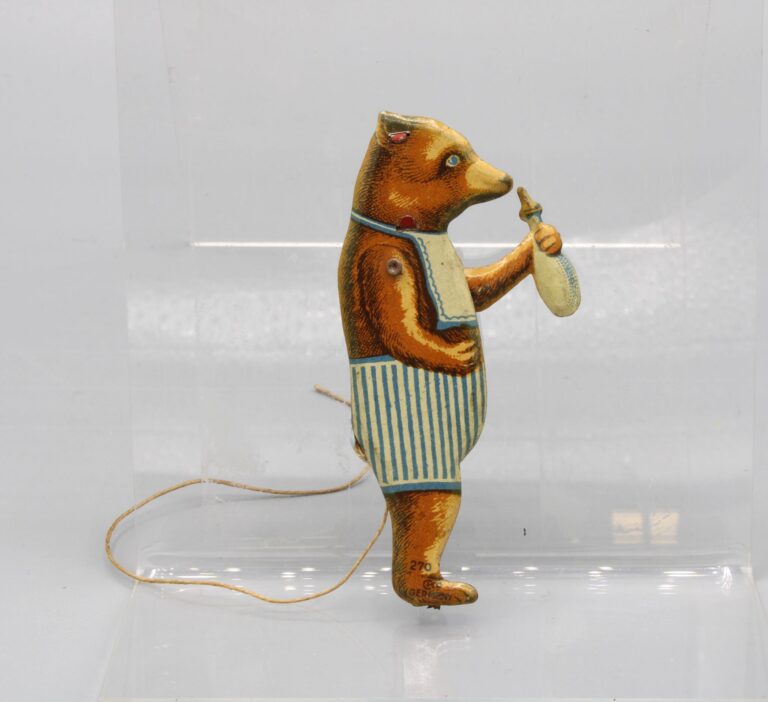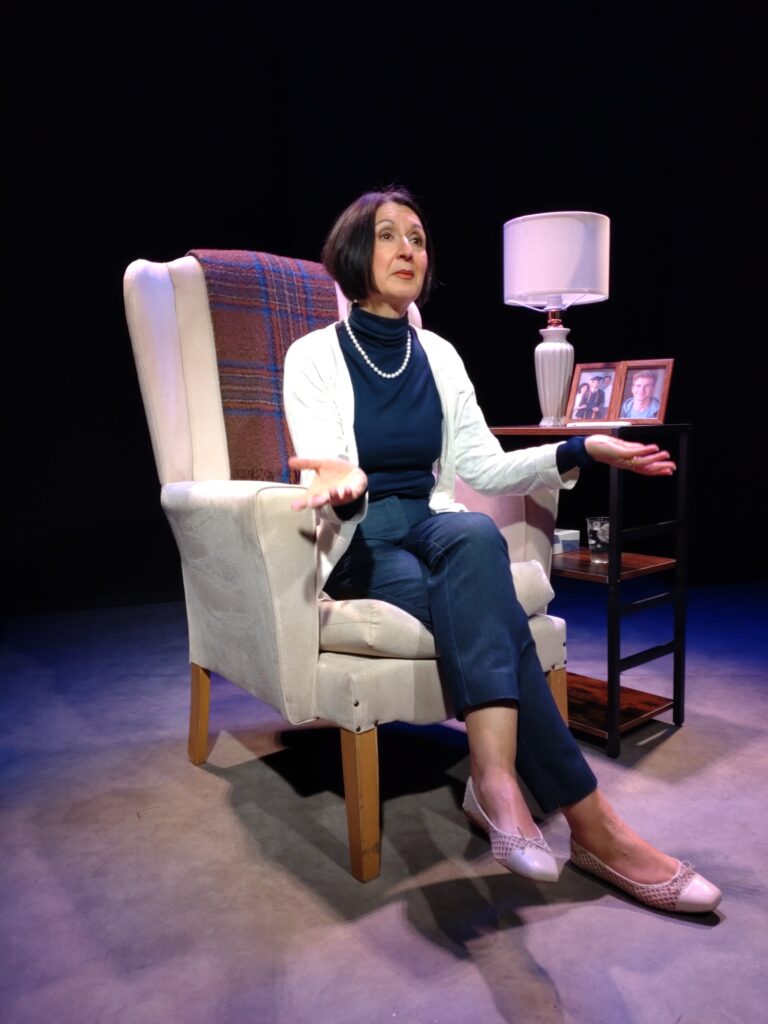You walk into the Lyttleton theatre and there is no hope. You take your seat and there is no hope. You watch the dates of previous Othello productions flash across the stage and there is no hope. Yes, you have seen Shakespeare’s Othello before and you know how it ends but Clint Dyer’s production at The National Theatre offers no relief, no vision of an alternate future. From the moment Othello takes the stage, the only black character pursued by a white mob, there is no path but the one that inevitably leads to death, writes Madeleine Kelly.
This is not to say Dyer’s production lacks inspiration or novelty. It is one of the most gripping productions I have seen, the tension building until at last, the trap closes and Othello is caught. At the beginning Giles Terera’s Othello is a gentle, thoughtful presence standing out amongst the brash, angry Venetians. The scars on his back speak of his enslavement but this Othello seeks tenderness in his relationship with Desdemona, played by Rosy McEwen. Together McEwen and Terera become the soft heart of this brutal world. But the backdrop to their love is a brutalist concrete amphitheatre whose steps conceal prison windows. Their audience is a cold, unfeeling chorus in a starched, black uniform called ‘System’; in their delicate shalwar kameez, the lovers do not stand a chance.
The first half is dominated by the racist System closing in on Othello – the curtain comes down on Iago torturing Othello with Desdemona’s supposed infidelity whilst System watches, indifferent in riot gear and minstrel masks. In the second half, System comes for Desdemona. McEwen’s interpretation is hardier than most, not a complete innocent but a smart and capable woman. McEwen’s gesticulations veer into lifestyle guru selling vitamins on the mainstage and she is outshone by Tanya Franks in her show-stealing turn as Emilia. Franks’ Emilia is a firebrand – witty and defiant she is the epicentre of the second half. With her bruised eye and bandaged arm, she knows more than Desdemona what husbands might do to their wives.
We might pity Othello by the time he realises he has been duped but it’s hard to feel moved for the men in this version. Even if Iago does provoke them, Casio and Othello are both brought down by their own violence. Sometimes it feels the only honest man is Iago, he is a violent, cruel, sociopathic man but he doesn’t pretend to be anything else.
Dyer’s Othello is horrifying and transfixing, a production that chooses to face the play’s darkness but it left me sour. Only a few months ago I watched The National Theatre’s The Crucible. Another well-trodden play, by the end all the girls and women were dead or broken but we were supposed to admire a man who had slept with his young employee. If each of these productions has delved deeper into the women in their plays, it has offered very little in the way of hope for them. Othello is brilliant but I don’t know how I feel about a National Theatre that has only a bloody vision for women, that finds no way out, that has nothing really new to say.
National Theatre, South Bank, SE1 until 21st January. Times: Mon-Sat 7.30pm; Wed & Sat matinees 2pm. Admission: £20 – £89.
Booking: www.nationaltheatre.org.uk






